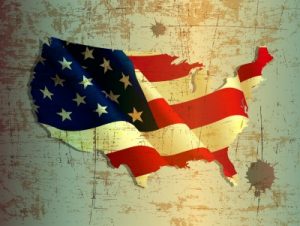
When I was in my mid-thirties, I was a university professor, and had always enjoyed perfect health. Suddenly, my health deteriorated, and over a period of one year, I ended up in the hospital diagnosed with an incurable disease with no known medical cause.
I wanted answers but no one could provide them – no doctor, no lab tech, no one – so I set out to uncover why I became suddenly ill.
I succeeded in my quest. and this was when I first discovered that aspartame caused my illness, and what I continued to uncover was shocking!
Since its discovery in the 1960s, aspartame has significantly influenced our global food supply. Despite the wealth of evidence showing that aspartame is a toxic substance, this chemical sweetener remains on the global market today.
In spite of scientific proof showing that aspartame causes neurological brain damage, cancer, endocrine disruption, weight gain, and fetal deformities, among other nasty health effects, aspartame is still marketed as a safe and natural chemical sweetener.
In my book Sweet Poison, I raise the flag on a current issue of great importance around the globe – on-going aspartame dangers.
Why is aspartame still on the market? Why are the health dangers caused by aspartame still ignored?
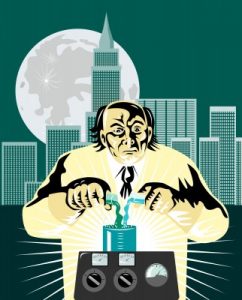
Aspartame is one of the most controversial topics in health history, and its safety concerns are impacting people all over the world. Over 40 percent of the world’s aspartame supply is manufactured in Japan.
Aspartame is an ingredient found in over 6,000 foods and beverages sold worldwide, including (but not limited to):
- diet sodas and other soft drinks
- instant breakfasts
- breath mints
- cereals
- chewing gum
- cocoa mixes
- frozen desserts
- gelatin desserts
- juices
- laxatives
- chewable vitamin supplements
- milk drinks
- pharmaceutical drugs and OTC medications
- shake mixes
- tabletop sweeteners
- teas
- instant coffees
- topping mixes
- wine coolers
- yogurt
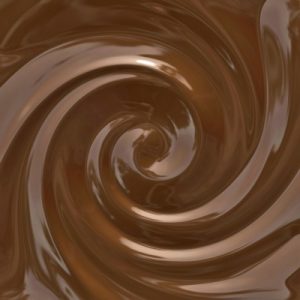
Aspartame is influencing the lives of millions of people worldwide, and increasing your awareness concerning the dangers of aspartame products can result in a healthier lifestyle for you and those around you. The stronger your health care community is, the healthier you and your family become.
Increased knowledge can guide you into a healthier future. I had to learn this lesson the hard way….
Made In Japan
American based G.D. Searle Pharmaceuticals first discovered aspartame in 1965. At that time, Searle contracted Japan’s Ajinomoto Company, Inc. to manufacture and supply their “revolutionary” amino acid-based sweetener, and Ajinomoto perfected the industrial synthesis of aspartame.
So this supports the fact that it is not a natural compound.
Today, the Ajinomoto Company claims to be the world’s largest producer of aspartame, with a 40 percent global market share. Ajinomoto has operations in 23 countries and regions worldwide backed by over 100 manufacturing facilities. They employ over 24,000 people, and their yearly revenue averages $9.84 billion U.S.
The questionable safety of aspartame puts Japan’s Ajinomoto Company in the middle of global consumer safety concerns.
The Ajinomoto Company states on their websites that they are the world’s “#1 Amino Acid Science Company.” Since 1908, they have been a world leader in the refining, blending, and pulverizing of amino acids.
They claim that they manufacture the world’s finest pharmaceutical grade amino acids; nevertheless, they also state that the two amino acids they use in aspartame are all natural. Global scientific research has discovered that the amino acids found in aspartame are not natural – do they have dumpsters full of banana skins and empty milk containers, pitching the remains out after extracting the amino acids from FOOD? I think NOT.
Scientific studies confirm that aspartame causes brain lesions, cancer, such as leukemia and lymphoma, memory loss, fetal deformities, and weight gain.
The debate on aspartame dangers carries on….
Rebranding Aspartame
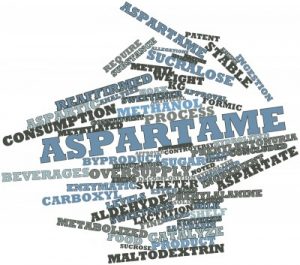
In 1985, Monsanto Chemical Company bought G.D. Searle Pharmaceuticals and created a separate subsidiary, The NutraSweet Company, for its aspartame business.
In 1992, Monsanto’s US patent on aspartame expired, and The NutraSweet Company lost their 20-year monopoly in the diet sweetener industry. Sales declined as competitors came onto the sweetener market, and concerns about aspartame health dangers were spreading worldwide over the new global Internet.
By March 2000, Monsanto decided to get out of the sweetener market and sold its sweetener business. Since that time, the company has competed for market share with other manufacturers, including Japan’s Ajinomoto Company, Inc.
Ajinomoto’s international production and marketing network for aspartame increased further in May 2000 when two EU joint ventures became fully owned subsidiaries of Ajinomoto under the names Ajinomoto Switzerland A.G. and Ajinomoto Euro-Aspartame S.A.
December 6, 2004, Ajinomoto announced that it was investing JPY 6 billion ($58 million US) to expand its aspartame manufacturing plants in Yokkaichi, Japan and Gravelines, France. Expansion began at these two locations in early 2005 and was completed by March 2006. Ajinomoto projected that it would remain the market leader in aspartame manufacturing, with a target goal of supplying more than half of the global aspartame market. They did not meet their expectations, however, and by 2009, Ajinomoto was researching new ways to improve aspartame’s market sales.
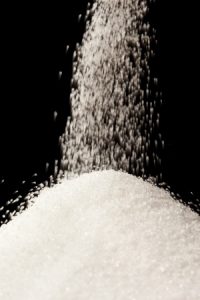
AminoSweet®
What did the manufacturer of one of the worlds most famous artificial sweeteners do as the market changed? They rebranded aspartame as the Japanese “Pal Sweet Diet®” to “AminoSweet“, and replicated the 1982 American marketing campaign claiming that aspartame was all natural.
After all, Ajinomoto had now invested millions into aspartame, and they needed AminoSweet to successfully resurge.
Today, the world is faced with many challenges, but those challenges can result in a change for the better. Something as simple as removing aspartame from your life can stimulate one of the biggest health transformations in health history. With the number of toxins in our foods and in the environment today, you can make the choice to remove aspartame from your personal life for a healthier future.
Knowledge is power. As an educated consumer, you have the information in Sweet Poison to choose what you and your family can safely eat and drink. Aspartame is proven to be one of the most dangerous chemical toxins in our modern food supply.
It’s stealth poisoning. No one is doing anything about it.
Why take the chance?
________________
If you want to learn more about the diet sweeteners, join my Inner Circle. Remember that you are never alone when you are recovering from an illness!
Gain access to all of my online programs, ongoing support, monthly Q&A, and more by joining my Private Inner Circle Membership Program. I look forward to supporting you on your journey to alternative health and wellness.
_____________
Disclaimer: This article is for informational purposes only, and is educational in nature. The FDA may not have evaluated some of the statements. This article is not intended to diagnose, treat, cure, or prevent any disease. Please discuss with your own, qualified health care provider before adding supplements or making any changes to your dietary program.
Before taking vitamins, consult your doctor; pre-existing medical conditions or medications you are taking can affect how your body responds to multivitamins.